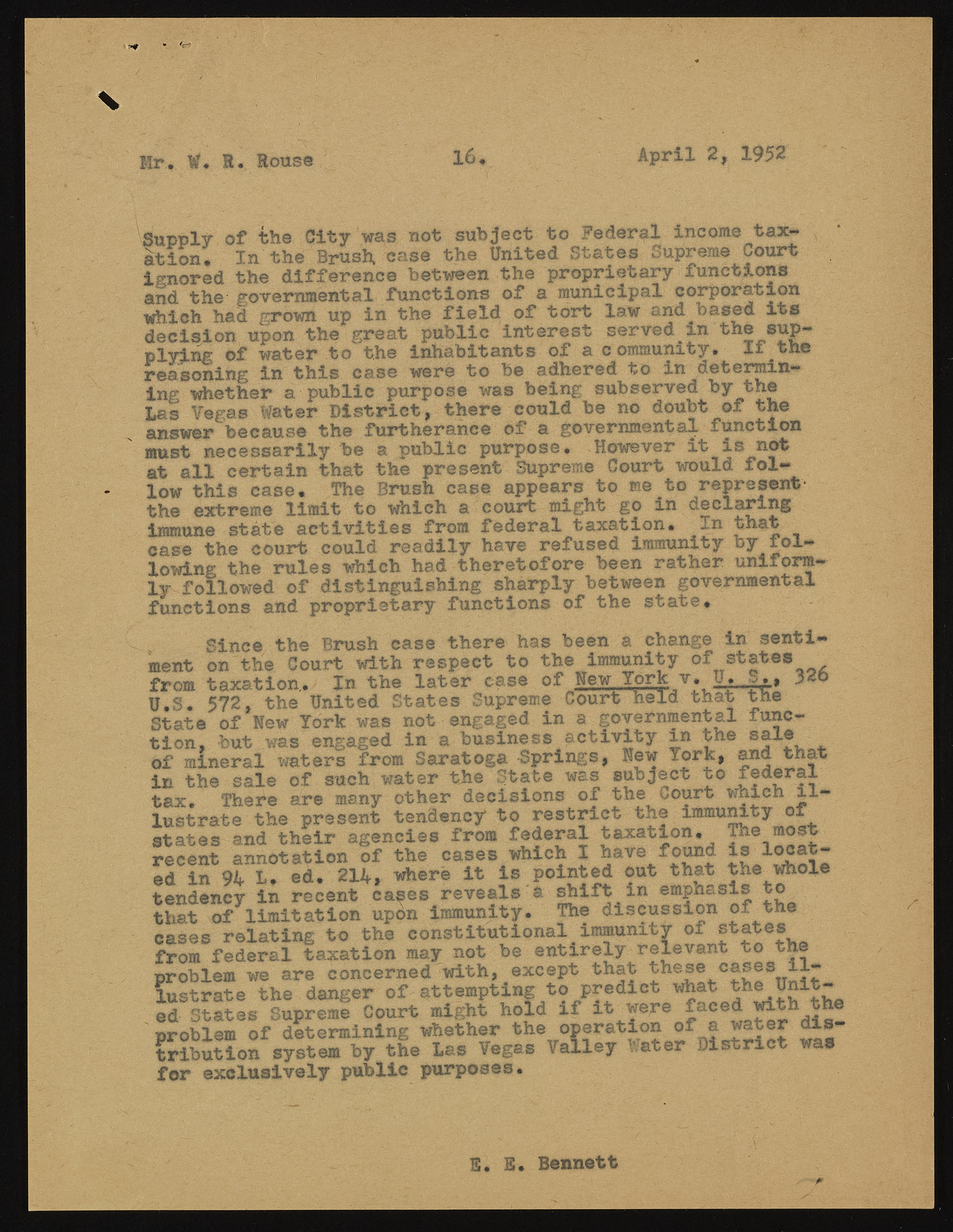Copyright & Fair-use Agreement
UNLV Special Collections provides copies of materials to facilitate private study, scholarship, or research. Material not in the public domain may be used according to fair use of copyrighted materials as defined by copyright law. Please cite us.
Please note that UNLV may not own the copyright to these materials and cannot provide permission to publish or distribute materials when UNLV is not the copyright holder. The user is solely responsible for determining the copyright status of materials and obtaining permission to use material from the copyright holder and for determining whether any permissions relating to any other rights are necessary for the intended use, and for obtaining all required permissions beyond that allowed by fair use.
Read more about our reproduction and use policy.
I agree.Information
Digital ID
Permalink
Details
More Info
Rights
Digital Provenance
Publisher
Transcription
Mr, V. R. Rouse 16, April 2, 1952 Supply of the City was not subject to Federal income tax** ation. In'the Brush, case the United States Supreme Court ignored the difference between the proprietary functions and the governmental functions of a municipal corporation which had grown up in the field of tort law and^based its decision upon the great public interest served^in the supplying of water to the inhabitants of a c ommunity* If the reasoning in this case were to be adhered to in determin— ing whether a public purpose was being subserved by the Las Vegas Water District, there could be no doubt of the answer because the furtherance of a governmental function must necessarily be a public purpose. However it is not at all certain that the present Supreme Court would follow this case. The Brush case appears to me to represent- the extreme limit to which a court might go in declaring immune state activities from federal taxation. In that case the court could readily have refused immunity by following the rules which had theretofore been rather uniformly followed of distinguishing sharply between governmental functions and proprietary functions of the s t a t e , Since the Brush case there has been a change in sentiment on the Court with respect to the immunity of states from taxation,. In the later case of NewJTork v. 2*3** 3^o U,S. 572, the United States Supreme Court held that the State of Hew Xbrk was not engaged in a governmental function, -but was engaged in a business activity in the of mineral waters from Saratoga -Springs, Hew York, and that in the sale of such water the State was subject to federal tax. There are many other decisions of the Court which illustrate the present tendency to restrict the immunity of states and their agencies from federal taxation. The most recent annotation of the cases which I have found is lo° ^ " ed in 94 L, ed* 214» where it is pointed out that the_whole tendency in recent cases reveals a shift in emphasis to that of limitation upon immunity. The discussion of the cases relating to the constitutional immunity of states from federal taxation may not be entirely relevant to the problem we are concerned with, except that ^ese cases illustrate the danger of attempting to predict what thei Unit ed States Supreme Court might problem of determining whethe rh othled iofp eirta twieorne o£facaewda ter dis tributlon system by the Las Vegas Valley W ater District was for exclusively public purposes. E. E. Bennett

